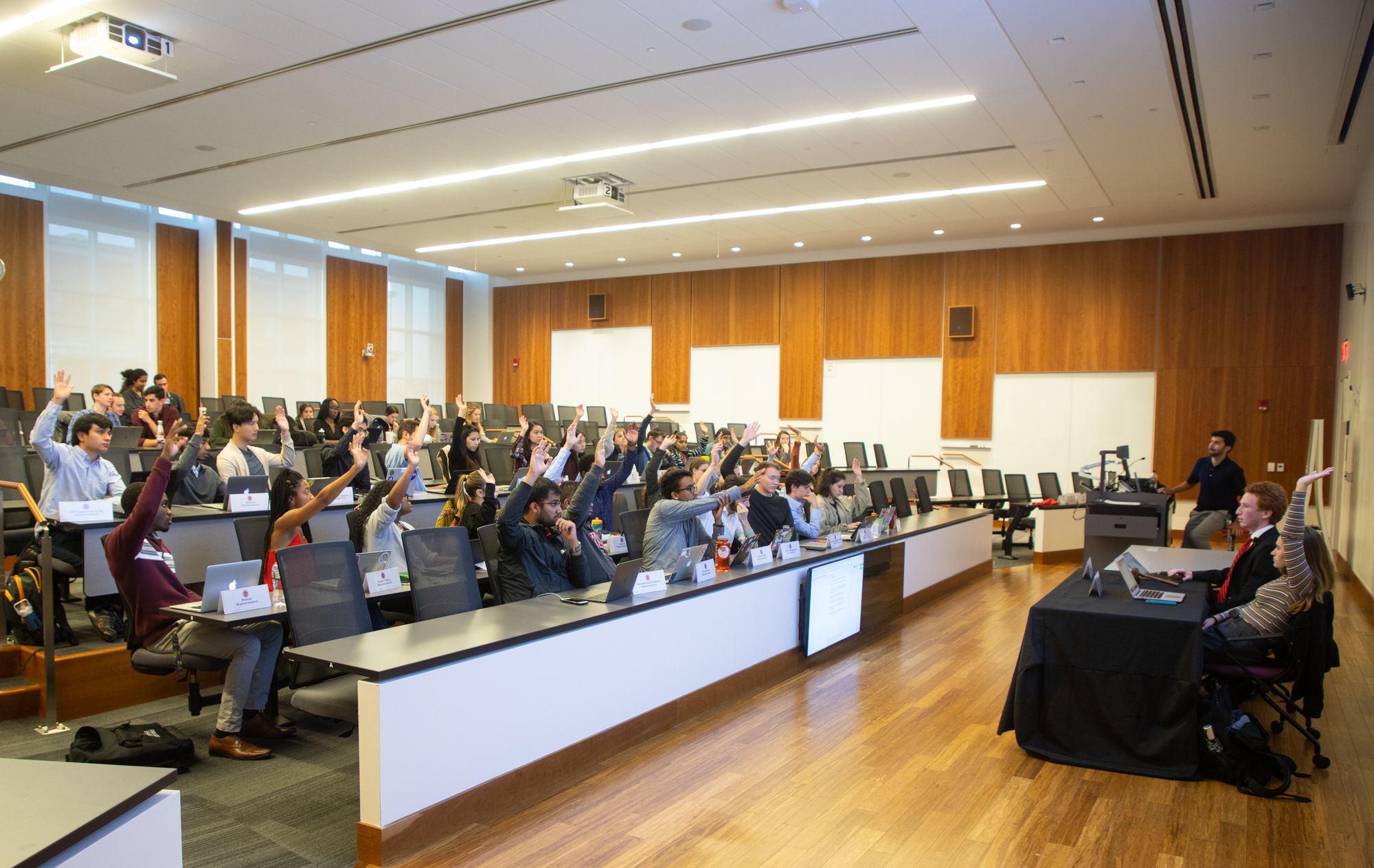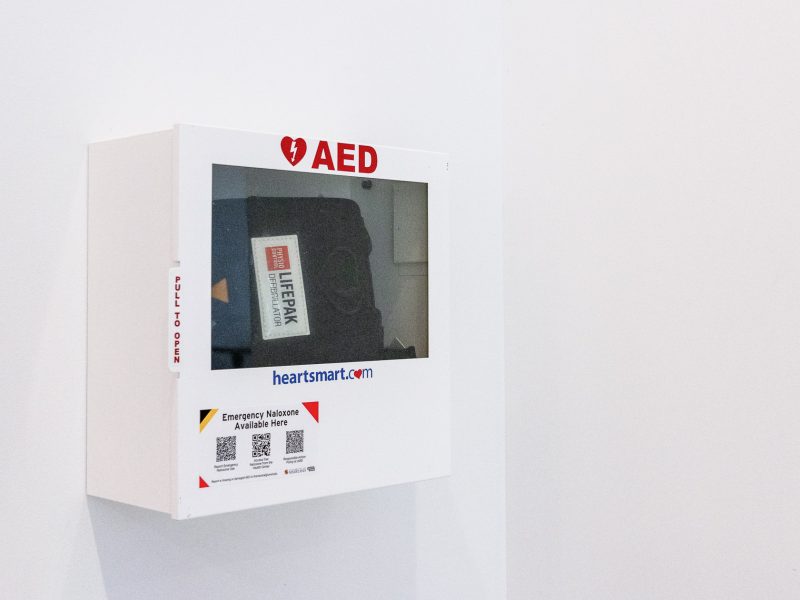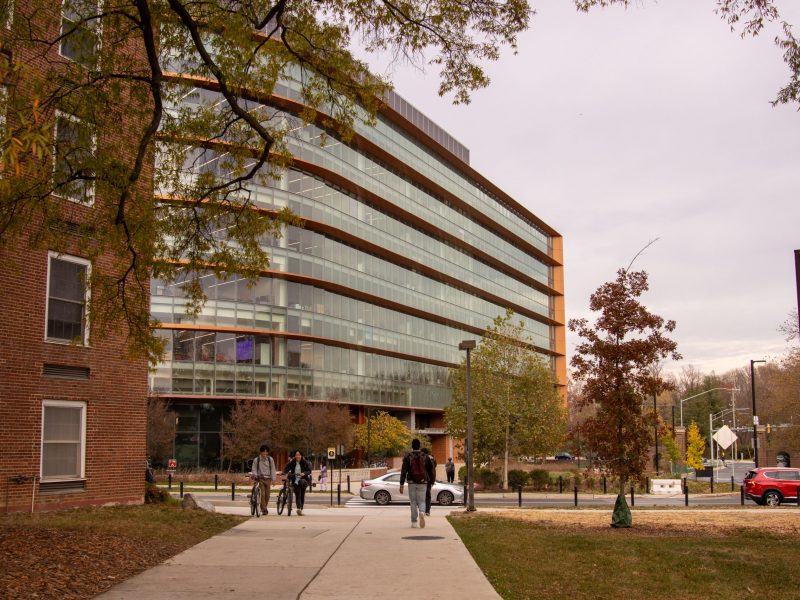When University of Maryland student Casey Tarman applied for SGA recognition and funding for her dance group, she thought she did everything right.
Tarman, the treasurer for the on-campus contemporary dance team Forward Motion, looked at all the forms, went to the one-hour required budget training session and submitted the application.
“We’ve always been SGA-recognized and -approved,” said Tarman, a senior applied mathematics major. “I wasn’t concerned about that.”
But Tarman’s group — along with more than 30 others — was denied funding in October amid a Student Government Association crackdown on student club recognition.
[Read more: After football scandal, UMD’s SGA wants student athletic fee to be opt-in]
To receive SGA recognition — a prerequisite for funding — student groups must have at least 25 members, must not be discriminatory or exclusionary and must not charge mandatory dues, according to the body’s club funding page.
“In the past, when [SGA’s recognition and funding processes] were audited, they actually found out that we’ve been giving money to student groups that have been charging dues,” said M Rao, the student groups director, when the issue was first introduced at the Oct. 3 meeting. “And that was a big no-no.”
So now, the process has tightened. The SGA had previously given much more in funds: In the September and October 2017 funding periods combined, the body distributed $316,983 to students — compared to just $176,508 for this year’s September and October periods.
Funds allocated in October can be used starting at the beginning of November, and September for October, respectively. This means that even if these clubs reapply this month, they won’t be able to use that money until Dec. 1.
Other than recognition, groups have to meet other mandatory steps: updating their group’s OrgSync page, get a certification at an SGA-led budget training workshop and update group inventory, according to the SGA’s finance page.
[Read more: UMD SGA paid $2,000 for early voting buses that only 30 students used]
The OrgSync website for Tarman’s dance group said they charged dues. That wasn’t actually the case — the site was out of date — but they were still denied recognition and funding.
“I was kind of surprised,” she said, “because [the mistake] was there in previous years and they didn’t catch it.”
If groups are fully or partially denied funds, they can go through an appeals process. They’ll first take their case to the finance committee, then to the legislature, making their case at a weekly SGA meeting with the help of an SGA student groups public defender if needed. Groups can also apply for emergency funds, which can be up to $1,500 per semester.
Tarman’s group decided not to fight their decision and instead focused on raising money the old-fashioned way.
“Now, I’m pushing more fundraising for us,” she said. “I am worried because we’ve only had one fundraiser and it has only covered about one-third of the money we asked for.”
There were 43 total appeals to the committee between September and October — and as of Monday, only two had decided to also appeal to the legislature as of Monday.
Faux Paz, a co-ed acapella group, appealed their decision to the SGA legislature and won their requested funds in full. They said they were unaware one of the reasons was because their application lacked specifics on how they’d spend the money allotted.
“But if we had known that the problem was that we were not clear, then we would have fixed it,” said Tiffany Ohr, Faux Paz president.
Finance vice president Andrew Stover said the organization tries to give “every single reason” that groups get denied in the organization’s funding spreadsheet.
“For some reason, we didn’t give the second reason,” Stover said. “This was our fault — this was our mistake.”
Student groups were also confused because the SGA and the Student Organization Resource Center combined their applications for the first time this semester. Some students thought SORC-recognition would automatically make them SGA-recognized.
“I think some people were confused by the process this semester,” said Stover, a junior public policy major. “With that switch, the goal was to make it easier.”
Many other groups were denied for reasons outside of recognition, such as problems with their bylaws and providing documentation of the costs, Stover said.
The Maryland Parliamentary Debate Society had issues with its recognition status in September, and was only given partial funding in October because of documentation issues, said Nathan Holliman, the operations vice president.
Holliman said “it’s a fantastic system” when it’s operating properly, but his biggest problem is communication with SGA officials about fixing mistakes.
“If it takes them a month to tell me ‘we don’t have this,’ that is a month where we don’t have funding,” Holliman said. “It made our job harder and it made us look disorganized to the new people joining.”
The group was not funded for about the first five of its tournaments this season, Holliman said, meaning members had to pay out-of-pocket for vehicle expenses and pay the school holding the tournament for hosting it. Sometimes, they had to make a “lot of promises” that they’d pay them back.
“There’s just a lot of layers to [go through to] talk to someone who knows what is going on,” he said of the funding process.
The SGA also partially denied the Iranian Student Foundation’s October funds because it didn’t specify how the foundation would spend money raised from its event admission prices — a new requirement that took effect that month.
Although the new addition was stated in the funding application and Stover sent out an email reminding groups of the rule, the Iranian Student Foundation didn’t receive it.
Now, the club is struggling with funding its annual Yalda event, an event celebrating the Iranian holiday that invites members of the public and students alike to experience performances and poetry.
Kamyar Dastani, the club’s president, said the event has been going on for more than a decade. The senior finance major remembers coming and performing at it when he was younger.
“It’s something I definitely sympathize with,” Stover said. “But as I said, my job is not to make exceptions for every group that has made a mistake — it is to make sure groups are following the rules, and that we are equitably and fairly distributing money.”
Stover added that the finance committee is planning to send out a survey soon to student groups for feedback on these types of issues.
Jonathan Allen, the SGA’s president, said when he was Terps for Israel president, he didn’t apply for SGA funding because of the complicated process. He noted that the group is looking for ways to reform it, but it takes time to change.
“It’s over a million dollars — it’s a significant amount of money,” he said. “It takes time to change [the process]. But we have the same focus and intentions of the groups, which is that we want to make it as easy as possible for them to get the money that they’re putting in back.”



